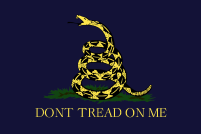 |
Stub Article "Help" - Still-Being-Drawnism This page is a stub. You can help FreePCB by expanding it. |
Reactionary Libertarianism, or Reactbert, for short (Not to be confused with ![]() Reactionary Liberalism), is an economically far-right, Libertarian, and
Reactionary Liberalism), is an economically far-right, Libertarian, and ![]() Reactionary ideology inspired on the Belgium political philosopher, Frank Van Dun, who, in the article "The 'Reactionary' Libertarianism of Frank Van dun", written by Richard Storey, is described as a "Reactionary Libertarian". The article shows extracts from Frank's correspondence with him outlining the case that the Feudal system was stateless and that the Church was, in fact, and contrary to most's beliefs, the greatest limitator to the rise of states in Europe.
Reactionary ideology inspired on the Belgium political philosopher, Frank Van Dun, who, in the article "The 'Reactionary' Libertarianism of Frank Van dun", written by Richard Storey, is described as a "Reactionary Libertarian". The article shows extracts from Frank's correspondence with him outlining the case that the Feudal system was stateless and that the Church was, in fact, and contrary to most's beliefs, the greatest limitator to the rise of states in Europe.
Beliefs
It primarily believes that ![]() Christianity and the Christian church, despite many believing it to be so, didn't bring about centralized government nor
Christianity and the Christian church, despite many believing it to be so, didn't bring about centralized government nor ![]() Statism, but quite the opposite, it managed to be a huge hindrance to the growth of centralization for centuries.
Statism, but quite the opposite, it managed to be a huge hindrance to the growth of centralization for centuries.
Frank says that, rather, centralization was brought about by the English system from the Conquest onward; it was virtually impossible to achieve on the continent. However, because royal absolutism did not last as long in England as it did on the Continent, “English freedom” became the model to follow in the 18th century and onward.
It also criticizes the ![]() and its tailor-made “ideology of Enlightenment”, which (as so much of later
and its tailor-made “ideology of Enlightenment”, which (as so much of later ![]() Progressive ideology) had a vital interest in obliterating everything that was associated with the stateless order of the medieval period and the role of the church in formal education in said period of time.
Progressive ideology) had a vital interest in obliterating everything that was associated with the stateless order of the medieval period and the role of the church in formal education in said period of time.
Among many things Frank criticizes in previously mentioned extracts, he criticized how ![]() Rothbardianism remained virtually silent on the statelessness of the medieval system, besides some very few mentions, while actively presupposing some form of (what he called) "
Rothbardianism remained virtually silent on the statelessness of the medieval system, besides some very few mentions, while actively presupposing some form of (what he called) "![]() Lutheran
Lutheran ![]() individualism", upon which is superimposed a structure of property and contract relations but which does not pay much, if any, atention to questions of responsibility and justificatory arguments.
individualism", upon which is superimposed a structure of property and contract relations but which does not pay much, if any, atention to questions of responsibility and justificatory arguments.
The Origin of the State
First its necessary to define what a ‘state’ is.
‘State’ derives from the Latin ‘status’. In the 15th century, however, it began to be used in ![]() Italian principalities and cities to refer to their “political economy” (the realm considered as a single household). However, even today there remains an ambiguity: the state as a single economy (now usually called ‘a society’) and the state as the apparatus of rule and government within society (which puts every inhabitant of a country inside or outside the state apparatus).
Italian principalities and cities to refer to their “political economy” (the realm considered as a single household). However, even today there remains an ambiguity: the state as a single economy (now usually called ‘a society’) and the state as the apparatus of rule and government within society (which puts every inhabitant of a country inside or outside the state apparatus).
Frank, though, believes that the term has been overly (mis)applied in the modern times, calling any system of rule a state, whether or not the rulers even claimed to have the right to govern anything but their household and whether or not they ruled by customary prerogative or governed by “the rights of conquest” (the former excluding, the latter including the “rights” to legislate and to tax at will).
It is also important to define ![]() Statism. Frank defines it as the 'idea that the ruler should have not only the power to rule (as supreme commander in times of war, as diplomat, and as judge in some but not necessarily all disputes among his subjects) but also the power to govern.' He says that medieval kings ruled their realm but did not govern anything within it besides his own household. Government (as distinct from rule) was a matter of private housekeeping.
Statism. Frank defines it as the 'idea that the ruler should have not only the power to rule (as supreme commander in times of war, as diplomat, and as judge in some but not necessarily all disputes among his subjects) but also the power to govern.' He says that medieval kings ruled their realm but did not govern anything within it besides his own household. Government (as distinct from rule) was a matter of private housekeeping.
Frank Van Dun believes the state (in the west) was a gradual transition from medieval rule to the modern political government, the latter reaching its full expression from the 16th century onwards (After the disasters and wars of the 14th century and the wars of the 15th century) when some major medieval kings became monarchs and the idea that the monarch's power to govern extended as far as imperium started to grow common.
This, then, lead to the formal organization of regular departments of government and their bureaucratization, that is, the separation of the purely administrative aspects of government from the purely political aspects. Thus the previous coceived idea that kings were first among equals with special prerogatives but no superior rights, was as good as dead.
Statelessness of the medieval system
Frank raised the case of the Medieval system as being ![]() Libertarian or, even,
Libertarian or, even, ![]() Anarchist, saying that it was not only anarchistic in the sense that it was situated in a stateless environment but also in the sense that it was intended to be anti-state.
Anarchist, saying that it was not only anarchistic in the sense that it was situated in a stateless environment but also in the sense that it was intended to be anti-state.
In the words of Frank Van Dun, the church was not only a protector of “private law systems” but rather the great protector of them. Without the church these systems wouldn't have been able to develop. Frank says that in medieval times, free cities, universities, mercantile associations, large estates, etc... developed their own systems of “private law-keeping” or, in other words, private systems of governance. These were more or less closed (private) economies (households or associations of households).
The Church insisted on their support for natural law, which kept those “private systems” compatible with each other as to what basic principles refer, preventing them from turning into separate collections of special-interest privileges.
In simpler terms, the Church oversaw the integrity of the system without interfering in the internal ordering of individual households or associations of households, unless they threatened to take over by forcefully eliminating the independence of other households.
Not having an army of its own, the Church relied on the good will of others, i.e. on its moral and theological prestige and authority (its intellectual capital). By decreasing the Church’s authority, and by robbing it of much wealth and income (and by implication, bargaining power), the ![]() Protestant crisis certainly undermined the major pillar of support for these medieval “private systems of governance.”
Protestant crisis certainly undermined the major pillar of support for these medieval “private systems of governance.”
How to draw

1. Draw a ball with eyes
2. Fill it with #1A1939
3. Draw a snake with #DAD47B and write "No step" below
Optional
4. Draw a helmet with a red plume
Relationships
Friends
 Neoreactionarism -
Neoreactionarism -  Austrian economics and
Austrian economics and  Reactionary social views? BASED! Just be more feudal and less of an absolute monarchist.
Reactionary social views? BASED! Just be more feudal and less of an absolute monarchist. National Capitalism - Literally me
National Capitalism - Literally me but statist! Korwinism - LITERALLY ME!
Korwinism - LITERALLY ME! but monarchist Confessionalism - "I was screamin' at my dad, he told me, "It ain't Christ-like"
Confessionalism - "I was screamin' at my dad, he told me, "It ain't Christ-like" Hoppeanism - My best friend though monarchy isn't that good
Hoppeanism - My best friend though monarchy isn't that good Kritarchy - Literally Me!
Kritarchy - Literally Me! Feudalism - Rule without govern!
Feudalism - Rule without govern! Reactionarism - It's time to REACT!
Reactionarism - It's time to REACT! Reactionary Liberalism - BROTHER! However you can be quite statist at times and simps toward absolute monarchy
Reactionary Liberalism - BROTHER! However you can be quite statist at times and simps toward absolute monarchy ...
... Anarcho-Monarchism - Good but you must have nobles and clergy.
Anarcho-Monarchism - Good but you must have nobles and clergy.
Frenemies
 Christian Libertarianism - Your love for the church and anti-statism is based, but you are too soft.
Christian Libertarianism - Your love for the church and anti-statism is based, but you are too soft. Conservatism - Cool n' all, but you've got to REACT!
Conservatism - Cool n' all, but you've got to REACT!
Enemies
 Reactionary Socialism - Just... how?
Reactionary Socialism - Just... how? Anarcho-Communism - Yes, I'm a neo-feudal and..?
Anarcho-Communism - Yes, I'm a neo-feudal and..? Absolute Monarchism - You statist centralist scum!
Absolute Monarchism - You statist centralist scum!
Literature
(Note:All by Frank Van Dun)
Natural law,liberalism and christianity
Articles
Gallery
-
Credit:
 TheLegend2T, Source
TheLegend2T, Source
-
Credit:
 Based And Jedpilled
Based And Jedpilled
Template:Libright Template:Libertarian
| | |

